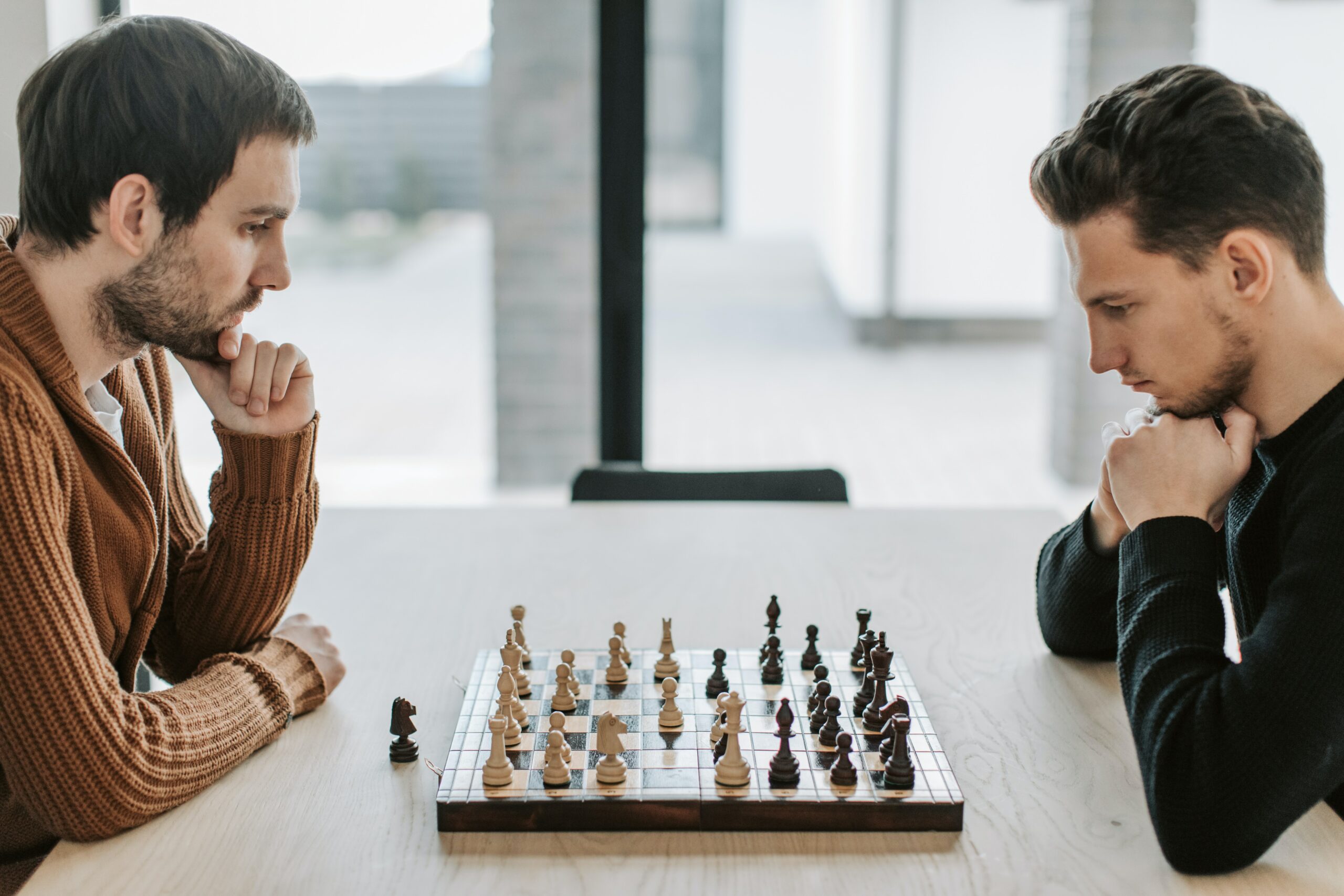Chess is a game that has captured the minds of people for centuries. It is a game of strategy, intellect, and concentration. But have you ever wondered how many calories you can burn while playing chess?
In this article, we will explore the fascinating world of chess and its impact on calorie burn. Whether you’re a chess enthusiast looking for an additional reason to love the game or someone curious about the physical benefits of chess, this article will provide valuable insights and answer your burning questions.
How does playing chess affect your calorie burn?
Chess may not be a physically demanding activity like running or cycling, but it does have an impact on your calorie expenditure. While it primarily involves mental exertion, chess also requires some physical engagement, especially during longer and more intense games.
The act of moving chess pieces and the mental strain of calculating moves and strategies can contribute to a modest calorie burn.
Is chess a sedentary or active game?

Chess is generally considered a sedentary game since it involves sitting in one place for an extended period. However, it’s essential to note that the mental stimulation and concentration required during a game can elevate your heart rate and engage your brain and muscles in a unique way.
While it may not be as physically active as other sports, chess can still offer some surprising benefits to your overall well-being.
Does playing chess help you stay fit?
Although chess doesn’t offer the same cardiovascular benefits as more physically demanding activities, it can still contribute to your overall fitness. The mental stimulation and critical thinking required in chess can help keep your brain sharp and agile.
Additionally, regular engagement in strategic games like chess has been associated with improved cognitive function and memory retention.
Can chess contribute to weight loss?
While chess alone may not be the most effective form of exercise for weight loss, it can certainly play a supporting role. Engaging in regular games of chess can help burn calories and increase your metabolic rate, which may contribute to a calorie deficit when combined with a healthy diet and other physical activities.
However, it’s important to note that weight loss primarily depends on creating a sustainable calorie deficit through a balanced lifestyle.
What are the physical benefits of playing chess?
Beyond mental stimulation, chess can offer several physical benefits. Firstly, it can help improve your posture and sitting habits, as maintaining a proper posture is essential during gameplay.
Chess also requires hand-eye coordination, fine motor skills, and finger dexterity, which can be beneficial for individuals of all ages. Moreover, playing chess can enhance your concentration, focus, and attention span, which can be valuable in various aspects of life.
Does chess increase your heart rate?
While chess may not have the same impact on heart rate as vigorous physical activities, it can still lead to a modest increase. The mental effort and concentration involved in intense chess matches can elevate your heart rate and provide a mild cardiovascular workout.
This can be especially true during critical moments of the game when you experience excitement or anticipation.
How does chess compare to other physical activities in terms of calorie burn?
In terms of calorie burn, chess is considered a low-intensity activity compared to more physically demanding sports like running or cycling. To put it into perspective, an average person playing chess can burn approximately 200 calories per hour.
In contrast, running can burn around 600 calories per hour, while cycling can burn around 400 calories per hour. However, it’s important to remember that the primary benefit of chess lies in mental stimulation rather than calorie burn.
| Chess | Running | Cycling | |
|---|---|---|---|
| Calories Burned per Hour | 200 | 600 | 400 |
| Physical Intensity | Low | High | Moderate |
| Cardiovascular Benefits | Mild | Significant | Good |
| Muscle Engagement | Minimal | Full body | Legs, core |
| Mental Stimulation | High | Low | Low |
Is playing chess a viable exercise alternative?
Playing chess can be considered a viable exercise alternative, especially for individuals who prefer mentally stimulating activities over traditional physical exercises. While chess may not provide the same level of cardiovascular benefits or muscle engagement as running or weightlifting, it offers its own unique advantages.
Chess requires intense mental focus, concentration, and strategic thinking, which can keep your brain active and agile. Engaging in regular games of chess can improve cognitive function, memory retention, and problem-solving skills. Additionally, chess can be a social activity, providing opportunities for friendly competition and interaction with other players.
Can chess be part of a healthy lifestyle?

Chess can be an integral part of a healthy lifestyle. Beyond its reputation as a game of intellect, chess offers numerous benefits for both the mind and body. Engaging in regular chess games stimulates the brain, enhances critical thinking skills, and improves memory retention.
It promotes concentration, focus, and strategic planning, all of which are essential for maintaining mental sharpness. Chess also provides a platform for social interaction and can be a source of enjoyment and stress relief. Incorporating chess into your routine encourages a balanced lifestyle by combining mental stimulation with other physical activities.
Does the intensity of the chess game affect calorie burn?
The intensity of a chess game can indeed have an impact on calorie burn. While chess is primarily a mental activity, the level of intensity during gameplay can increase the expenditure of calories. Intense games often require deeper concentration, critical decision-making, and longer gameplay sessions, which can result in a higher metabolic rate and, consequently, a more significant calorie burn.
The mental strain and focus exerted during these intense matches contribute to a heightened level of engagement, leading to a slightly higher energy expenditure compared to casual or shorter games. It’s important to note, however, that the primary benefits of playing chess lie in its mental stimulation rather than its calorie-burning potential.
How many calories can you burn during a chess match?
On average, playing chess can help you burn approximately 200 calories per hour. However, it’s essential to note that this estimate can vary depending on factors such as individual body weight, intensity of the game, and duration of the match.
Longer, more intense matches will naturally result in higher calorie burn compared to shorter or less demanding games. It’s also worth mentioning that the primary benefits of playing chess lie in its mental stimulation rather than its calorie-burning potential.
Does the duration of the game impact calorie expenditure?
Yes, the duration of the game can impact the number of calories burned. The longer you engage in a game of chess, the more calories you are likely to burn.
However, it’s important to maintain a balance and not rely solely on chess for your physical activity needs. Combining chess with other forms of exercise can provide a more well-rounded approach to fitness and ensure you reap both mental and physical benefits.
Is playing chess a good way to stay mentally and physically active?
Playing chess is indeed a fantastic way to stay both mentally and physically active. As a game that demands strategic thinking, problem-solving, and critical decision-making, chess exercises and stimulates the brain. It enhances cognitive abilities, improves memory retention, and sharpens concentration and focus.
The mental challenges presented by chess help keep the mind agile and can even contribute to the prevention of cognitive decline. Additionally, although chess may not provide a rigorous physical workout, it still engages the body to some extent.
Moving chess pieces and maintaining good posture during gameplay can improve hand-eye coordination, fine motor skills, and overall body awareness. While playing chess alone may not result in significant weight loss, it can be an enjoyable and intellectually stimulating addition to a well-rounded fitness routine.
Can chess be a part of your fitness routine?

Certainly! Chess can be an enjoyable and intellectually stimulating addition to your fitness routine. Incorporating regular chess games into your schedule can provide a break from traditional workouts while still keeping your mind engaged and active.
It offers a balance between mental challenges and physical engagement, making it an excellent choice for individuals looking for diverse ways to stay fit and mentally sharp.
Are there any strategies to maximize calorie burn while playing chess?
While playing chess may not be a high-intensity physical activity, there are strategies you can employ to maximize calorie burn and make your gameplay more physically engaging.
Here are some tips to enhance your calorie-burning potential while playing chess:
-
Stand while playing: Instead of sitting for the entire game, try playing chess while standing. This simple change can increase your energy expenditure and engage your muscles more actively.
-
Incorporate movement breaks: During breaks between moves, take the opportunity to include short bursts of physical activity. Perform quick exercises like jumping jacks, lunges, or squats to elevate your heart rate and burn additional calories.
-
Maintain good posture: Focus on sitting with proper posture throughout the game. Engage your core muscles and avoid slouching to add a subtle element of physical activity to your chess session.
-
Play longer and more intense games: Longer and more intense chess games can lead to a higher calorie burn. Engaging in matches that require deeper concentration and critical decision-making will naturally increase your metabolic rate and contribute to more significant calorie expenditure.
-
Combine chess with other exercises: To create a more well-rounded fitness routine, consider combining chess with other forms of exercise. For example, you can play a game of chess before or after a workout session, allowing your mind to stay sharp while also engaging in physical activity.
Nevertheless
Playing chess may not be the most calorie-burning activity, but it offers a plethora of mental benefits and can be a fantastic addition to a healthy and active lifestyle. Chess enhances cognitive function, promotes strategic thinking, and provides an avenue for intellectual stimulation.
While physical activities like running or cycling are vital for cardiovascular health, incorporating chess into your routine can provide a well-rounded approach to overall well-being. So, next time you sit down at the chessboard, know that you’re not only exercising your mind but also contributing to your holistic fitness journey.




